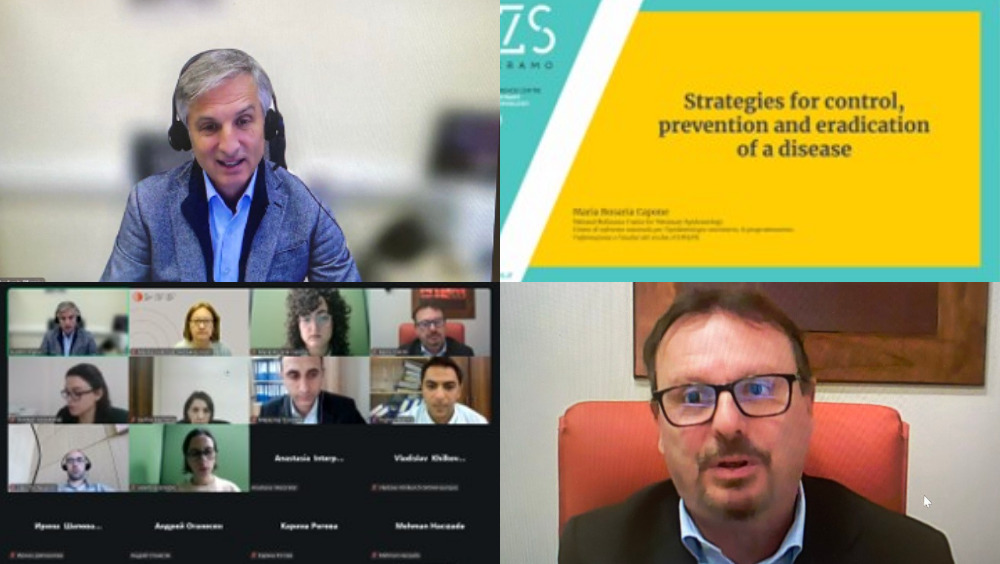The World Organisation for Animal Health, Regional Representation for Europe, together with the Istituto Zooprofilattico Sperimentale dell’Abruzzo e del Molise “Giuseppe Caporale” (IZSAM), based in Teramo, (Italy), has launched a blended training programme on basic epidemiology in animal health for Official Veterinarians from Armenia, Azerbaijan, Georgia, and the Russian Federation.
The training, to be held in four online sessions will held from 13 November to 3 December 2025, will strengthen foundational skills in epidemiology, planning, data analysis, and introductory risk assessment, capacities essential for evidence-based decision-making. The initiative is funded by the Russian Federation, reflecting continued commitment to supporting regional veterinary services.
The educational programme for the sub-region was created in cooperation with WOAH Capacity Building Department and IZS Teramo, WOAH Collaborating Centre known for its excellence in epidemiology, modelling, surveillance, and capacity building. Under the scientific leadership of Dr Paolo Calistri, experts from the National Reference Centre for Veterinary Epidemiology delivered lectures, practical exercises, and guided discussions aimed at reinforcing participants’ competencies.
Participants, national veterinary experts will explore four key thematic modules:
The course also applied a blended methodology, combining live online sessions with weekly practical exercises to encourage hands-on application of newly acquired skills.
The WOAH Capacity Building Department provided strategic support throughout the design and implementation of the training, ensuring that the programme aligns with Members’ technical needs and contributes to the long-term strengthening of veterinary services.
Sharing similar epidemiological patterns and transboundary disease risks, the four participating countries stand to benefit from enhanced technical capacities and stronger professional networks. The training underscores WOAH’s commitment to fostering regional cooperation and developing the skills necessary to strengthen resilience against animal health threats.

